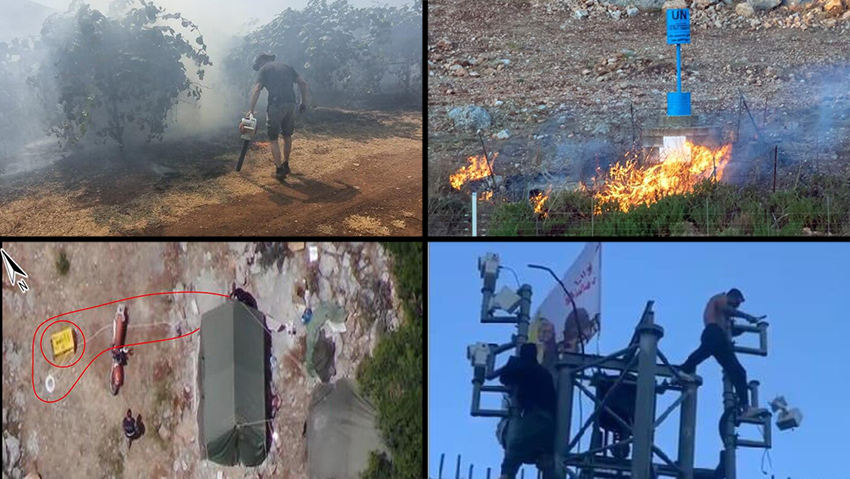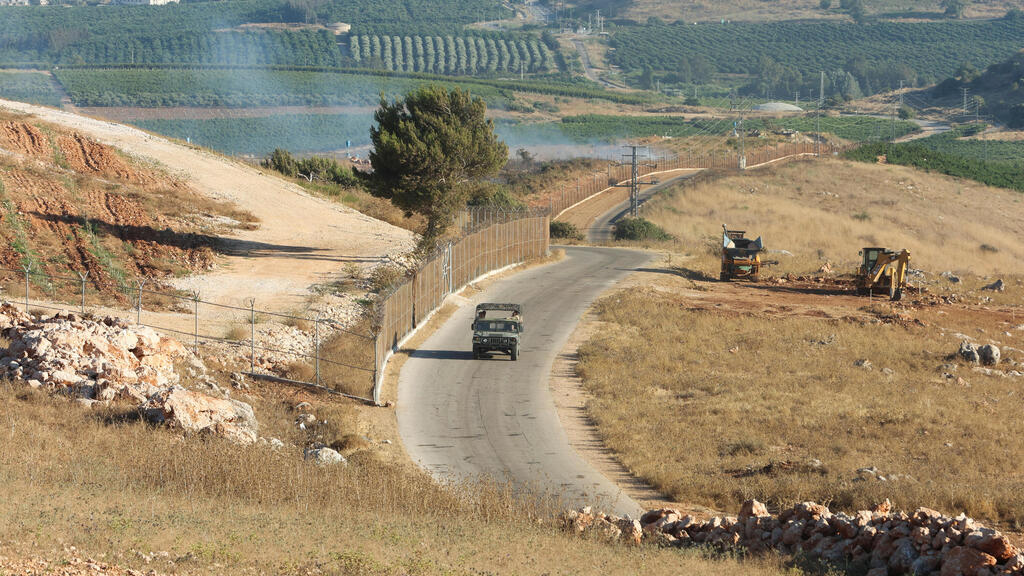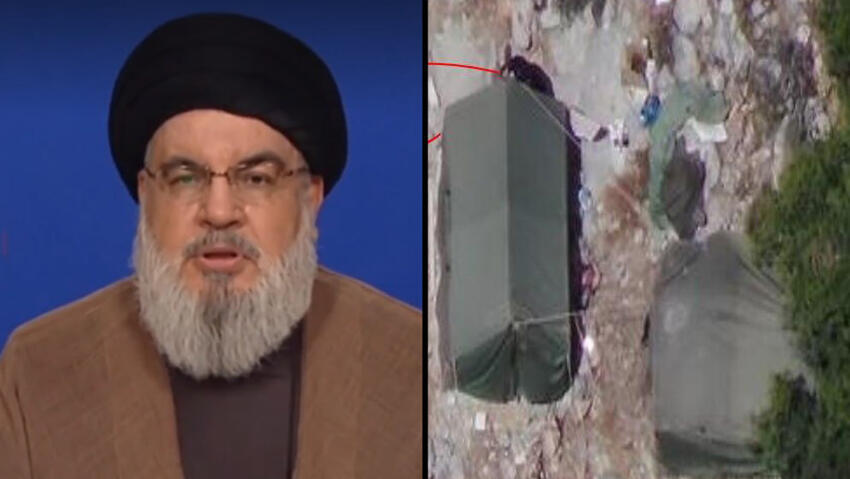Iranians and Hezbollah have an almost uncontrollable urge to bully Israel without paying a significant price. Hezbollah's Secretary-General, Hassan Nasrallah, believes he knows Israel well and can take advantage of Israel's domestic crisis to provoke and humiliate it, while risking only a few days of battle at most.
Read more:
Nasrallah has adopted a practice in which he declares that he and his men would come out victorious at the end of such short battles, because they may cause destruction and losses on the Israeli side, while his men and Lebanon would suffer several casualties and damaged homes in South Lebanon—a price he is willing to pay. In contrast to the Israeli response, which highlights the risks of destruction on our side, Nasrallah seeks to bolster his image as a "defender of Lebanon."
Israel has no interest in confronting Hezbollah at the moment, and the IDF has no interest in absorbing casualties, wasting resources, or facing international legitimacy issues over a few valueless days of battle that will ultimately return the situation to its original state. Additionally, the IDF wants to complete the construction of the engineering obstacle it is establishing along the Lebanon border to block or delay a ground attack by Hezbollah's elite Radwan Force.
Thousands of Radwan personnel are already stationed along the border, training to seize Israeli settlements and crucial junctions in the event of a major confrontation. Israel is not interested in a full-scale war at this time, especially during the summer when children are outside of schools, in camps, and in nature, and many reservists are abroad. Another significant reason why Israel has no interest in getting entangled even in only a few days of battle with Nasrallah is that many reservists have lost trust in the political leadership's security decisions due to the ongoing crisis resulting from the coalition's attempted coup and the reshuffling of the security cabinet, most of whom lack knowledge in military and security affairs.
Footage of the IDF Chief of Staff taken by Hezbollah
The IDF wants to choose the right timing to deliver a severe blow to Hezbollah throughout all of Lebanon, which will impact both Hezbollah's power and its ability to harm Israel through its missile arsenal and Radwan Force, while also sabotaging Iran's "second-strike capability" in Lebanon in case Israel attacks its nuclear facilities. On Sunday, after the security discussion, the Prime Minister's Office announced that Netanyahu decided to accept the IDF's proposals to address the provocations by Hezbollah on the Israel-Lebanon border.
The "immunity space" Nasrallah believes he has expanded
However, we must understand the strategic narrative behind the current tension prevailing on the northern border. There is mutual deterrence between Lebanon and Israel, this is not new. However, Nasrallah believes that he has recently managed to reinforce the threat to Israel and, as a result, strengthen his deterrence against us and expand his "immunity space." Therefore, his sense of security has grown. This is due to the large number of rockets, missiles, and drones he has accumulated, and especially due to the fact that hundreds of them are accurate ones capable of causing significant damage to military and civilian infrastructure in Israel in the event of war.
Another reason for Nasrallah's confidence is the presence of the Radwan Force on the border with Israel. From his recent statements and speeches, it appears that he believes they can achieve a significant achievement in their enemy's consciousness amid a large-scale conflict if they manage to breach Israeli settlements or capture a position of the IDF while holding Israeli civilians as hostages.
The third reason for Nasrallah's increasing audacity is his perception that Israel has weakened and is prone to mistakes due to the political upheaval and the response of reservists, which, in his assessment, affects the readiness and unity of the IDF.
However, do not be mistaken - Nasrallah does not want a full-scale war, and his Iranian patrons have also cautioned him against getting entangled in a war that would result in the loss of his military and civilian assets. Rather than being there to assist Iran when Israel attacks its nuclear facilities, Nasrallah would need Iran's help. He also positions Lebanon's interests in high regard and portrays himself as a Lebanese, not merely serving Iran. He knows that Lebanon's current state cannot absorb the destruction and casualties that would result from a major confrontation with Israel. Nasrallah also understands that if the IDF executes its comprehensive plans for a war in Lebanon, it will severely impact the Shia community that supports Hezbollah.
Nevertheless, Nasrallah believes that the strengthening of Hezbollah and the crisis in Israel grant him an expanded "immunity space." Within this space, he can exercise provocations and take risks, while being sure that at most, he will face a few days of combat. He takes advantage of this "immunity space" to carry out provocations that reinforce his position as Lebanon's defender. Nasrallah relies on this political reinforcement because most Lebanese civilians rightfully blame him for the political, economic, and social crisis that has crippled Lebanon as a functioning state.
The second goal of the Lebanese provocations is to disrupt the IDF and the State of Israel's efforts to build the obstacle on the border. This project greatly concerns the Radwan Force, and they want to obstruct the work on its development. Additionally, there are isolated provocations that the Radwan Force initiate on the border, likely without seeking Nasrallah's approval, in an attempt to take it upon themselves to also taunt the current political crisis in Israel.
The IDF's mistakes
Given all this, the IDF recommends the government not get dragged into anything because of the provocations on the border that do not directly impact Israel's security or sovereignty. The IDF made several mistakes when it did not respond swiftly and decisively to the establishment of posts a few dozen meters into Israeli territory on Mount Dov and the theft of the border camera in Metula. The hesitation and reliance on diplomatic channels in these cases were errors. These situations could have been resolved through a rapid and assertive deterrent response from the outset. However, what happened, happened, and the future will determine whether this tense summer will go by without a major escalation.
Neither side has an interest in such a major escalation, but it could happen as a result of Hezbollah's provocation and the IDF's response, or due to a misjudgment of the enemy's intentions. Therefore, the IDF needs to be prepared and ensure that if a major confrontation with Hezbollah occurs, the fighting will not stop until Hezbollah and Lebanon suffer severe damage that silences them for a long time. This will also serve the larger conflict with Iran, which will lose one of its most critical military assets. Currently, Iran encourages Nasrallah to bully Israel in order to weaken it, partly because it wants to reach a nuclear agreement with the United States but doesn't want to halt its activities against Israel for this reason.






